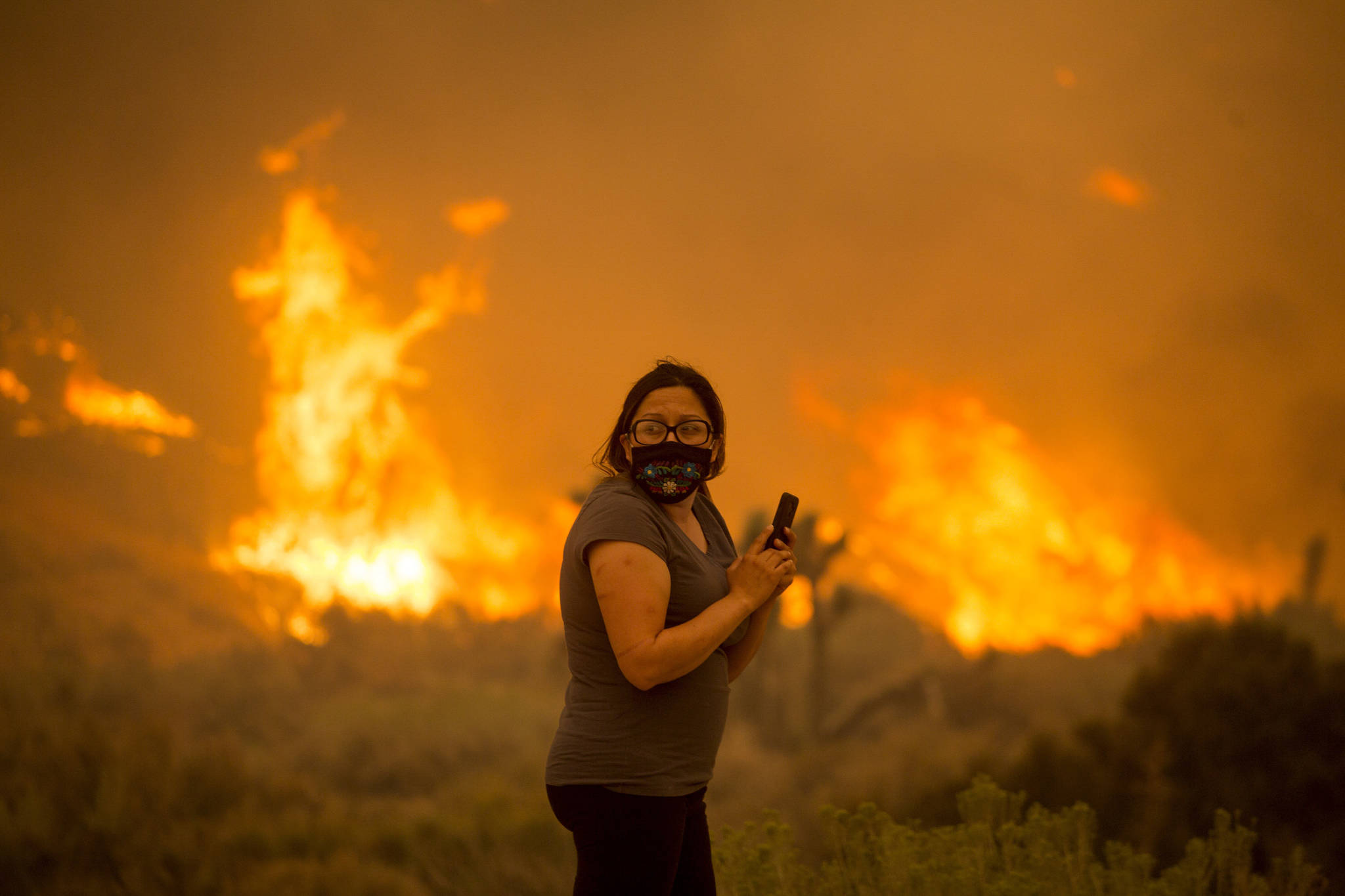California’s largest wildfire is threatening a cannabis-growing enclave, and authorities said many of the locals have refused to evacuate and abandon their maturing crops even as weather forecasters predict more hot, dry and windy conditions that could fan flames.
The wildfire called the August Complex is nearing the small communities of Post Mountain and Trinity Pines, about 200 miles (322 kilometres) northwest of Sacramento, the Los Angeles Times reported.
Law enforcement officers went door to door warning of the encroaching fire danger but could not force residents to evacuate, Trinity County Sheriff’s Department Deputy Nate Trujillo said.
“It’s mainly growers,” Trujillo said. “And a lot of them, they don’t want to leave because that is their livelihood.”
As many as 1,000 people remained in Post Mountain and Trinity Pines, authorities and local residents estimated Thursday.
The area is in the Emerald Triangle, a three-county corner of Northern California that by some estimates is the nation’s largest cannabis-producing region.
People familiar with Trinity Pines said the community has up to 40 legal farms, with more than 10 times that number in hidden, illegal growing areas.
Growers are wary of leaving the plants vulnerable to flames or thieves. Each farm has crops worth half a million dollars or more and many are within days or weeks of harvest.
One estimate put the value of the area’s legal cannabis crop at about $20 million.
“There (are) millions of dollars, millions and millions of dollars of marijuana out there,” Trujillo said. “Some of those plants are 16 feet (5 metres) tall, and they are all in the budding stages of growth right now.”
Gunfire in the region is common. A recent night brought what locals dubbed the “roll call” of cannabis cultivators shooting rounds from pistols and automatic weapons as warnings to outsiders, said Post Mountain volunteer Fire Chief Astrid Dobo, who also manages legal cannabis farms.
Mike McMillan, spokesman for the federal incident command team managing the northern section of the August Complex, said fire officials plan to deliver a clear message that “we are not going to die to save people. That is not our job.”
“We are going to knock door to door and tell them once again,” McMillan said. “However, if they choose to stay and if the fire situation becomes, as we say, very dynamic and very dangerous … we are not going to risk our lives.”
Efforts to extinguish more than two dozen major wildfires across California have benefitted recently from low winds and normal temperatures along with and moist air flowing inland from the Pacific. But forecasters said that weather pattern will reverse during the weekend as a ridge of high pressure boosts temperatures and generates gusty winds flowing from the interior to the coast.
In northern and central areas of the state the strongest winds were forecast to occur from Saturday night into Sunday morning, followed by another burst Sunday night into Monday.
The Pacific Gas & Electric utility was tracking the forecasts to determine if it would be necessary to shut off power to areas where gusts could damage the company’s equipment or hurl debris into lines that can ignite flammable vegetation.
The utility posted a power cut “watch alert” for Saturday evening through Monday morning. If the shutoff happens, about 21,000 customers in portions of northern Butte, Plumas and Yuba counties would lose power, PG&E said.
When heavy winds were predicted earlier this month, PG&E cut power to about 167,000 homes and businesses in central and northern California in a more targeted approach after being criticized last year for acting too broadly when it blacked out 2 million customers to prevent fires.
PG&E equipment has sparked past large wildfires, including the 2018 fire that destroyed much of the Sierra foothills town of Paradise and killed 85 people.
In Southern California, meteorologists anticipate very hot and dry weather conditions with weak to locally moderate Santa Ana winds on Monday.

